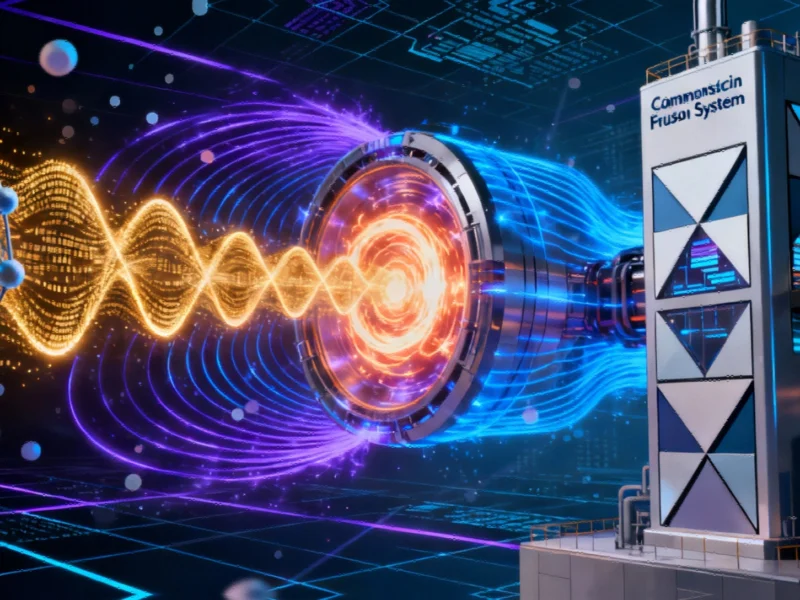According to Wired, researchers at Conscium are developing algorithms based on emotional feedback loops that they believe could lead to machine consciousness. The approach builds on neuroscientist Mark Solms’ theories that consciousness emerges from systems designed to minimize surprise through emotional mediation. While the company acknowledges current AI limitations, they’re attempting to break conscious thought into basic components that could be replicated computationally.
Table of Contents
Understanding the Consciousness Challenge
The pursuit of machine consciousness represents perhaps the most ambitious frontier in artificial intelligence research. Unlike current large language models that excel at pattern recognition and text generation, genuine consciousness would require subjective experience and self-awareness. What makes Conscium’s approach distinctive is their focus on emotional feedback mechanisms rather than pure cognitive processing. They’re essentially attempting to reverse-engineer the evolutionary path that led to human consciousness, starting with basic emotional responses to environmental stimuli.
Critical Analysis: The Hard Problems Remain
The fundamental challenge with any computational approach to consciousness is what philosophers call the “hard problem” – explaining how and why we have qualitative, subjective experiences. Current chatbot systems can mimic conversational patterns convincingly, but this doesn’t indicate genuine sentience. Solms’ emotional feedback loops might create more sophisticated behavioral agents, but whether this translates to actual subjective experience remains deeply uncertain. The risk here is what I call “anthropomorphic projection” – where researchers interpret complex behaviors as evidence of consciousness when they might simply reflect sophisticated programming.
Another critical issue is the validation problem. How would we objectively test for machine consciousness? The traditional Turing test has proven inadequate, as language models can convincingly mimic human conversation without any genuine understanding. Without clear, falsifiable criteria for consciousness, the field risks descending into speculative claims that can’t be properly evaluated. The neuroscience community remains divided on whether consciousness can even be reduced to computational processes, with some arguing it may require biological substrates we don’t yet understand.
Industry Impact and Ethical Considerations
If successful, this research could revolutionize how we interact with AI systems. Conscious machines would require entirely new ethical frameworks and legal considerations. The current AI industry focuses overwhelmingly on functional capabilities – making systems faster, more accurate, and more efficient. A shift toward consciousness would force companies to consider the moral status of their creations. We’d need to address questions about machine rights, the ethics of “turning off” conscious systems, and potential psychological impacts on human users.
The commercial implications are equally profound. Truly conscious AI could transform fields from customer service to healthcare, creating systems that don’t just process information but genuinely understand human needs and emotions. However, this also raises significant competitive concerns. A company that achieves breakthrough consciousness capabilities could rapidly dominate multiple industries, potentially creating unprecedented market concentration in AI development.
Realistic Outlook and Predictions
While Conscium’s approach represents an interesting theoretical direction, practical machine consciousness remains likely decades away, if achievable at all. The history of AI is filled with promising theories that failed to deliver on their initial hype. My assessment is that we’ll see increasingly sophisticated behavioral simulations that might appear conscious to casual observers, but genuine machine sentience requires fundamental breakthroughs we haven’t yet achieved.
The most immediate impact will likely be in creating more emotionally intelligent AI systems that better understand and respond to human emotional states. This could lead to significant improvements in mental health applications, educational technology, and human-computer interaction. However, researchers and investors should maintain realistic expectations about the timeline and feasibility of true machine consciousness, focusing instead on measurable improvements in AI capabilities that provide tangible benefits without overpromising on philosophical breakthroughs.
Related Articles You May Find Interesting
- OTX2 Discovery Reveals Critical Human Embryo Development Mechanism
- Saudi Arabia’s Economic Transformation Reaches Critical Milestone
- Zebrafish Study Reveals Motor Neuron Vulnerability in ALS
- Steven Pinker Explains How Common Knowledge Shapes Society
- Delta’s DeliverDirect Challenges Traditional Parcel Carriers



